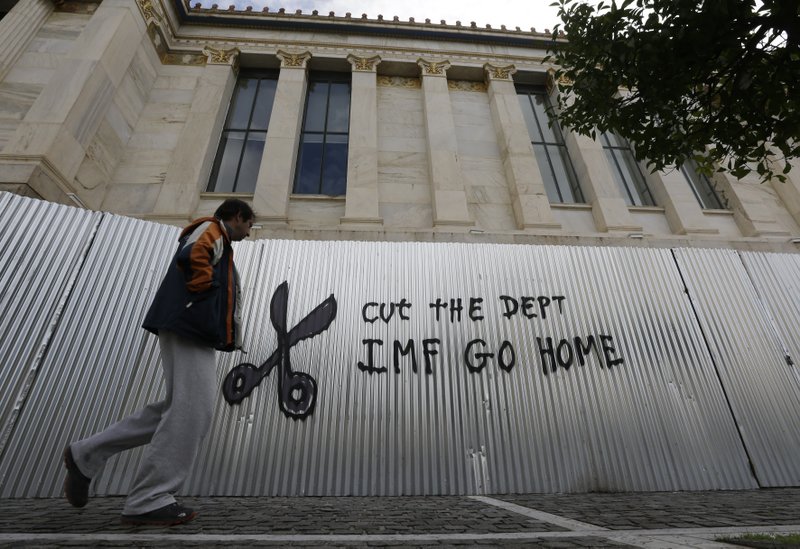ATHENS, Greece -- Germany bluntly rejected suggestions that Greece should be forgiven repayment of its rescue loans, as a top eurozone finance official met the country's new leftist government leaders in Athens on Friday.
The radical Syriza party won general elections over the weekend with pledges that included seeking forgiveness of more than half of Greece's debt, and has already promised to renege on key budget changes required in exchange for the a $270 billion rescue package.
"The discussion about a debt cut or a debt conference is divorced from reality," Martin Jaeger, a German Finance Ministry spokesman, said in Berlin.
Jaeger said Greece was obliged to abide by the terms of the bailout program agreed by previous governments or endanger the bailout program. Without the rescue loans from its fellow eurozone countries and the International Monetary Fund, Greece would go bankrupt.
"If the measures announced by the new government in Athens were implemented, then one has to ask whether the basis of the program wouldn't be called into question and therefore pointless," he said.
Jeroen Dijsselbloem, the Dutchman who chairs eurozone finance meetings, met with Prime Minister Alexis Tsipras and his finance minister, Yanis Varoufakis.
Dijsselbloem was joined by Thomas Wieser, head of a group of eurozone officials that has dealt extensively with Greek bailout negotiations.
Tsipras' new government has already said it will not move ahead with several planned privatization projects or aim for budget surpluses required to pay down Greece's national debt.
Syriza has also promised to break off talks with bailout negotiators from the "troika" -- the European Commission, European Central Bank and International Monetary Fund -- and seek negotiations directly with the eurozone government to try to cancel more than half the bailout debt.
European officials say they expect Greece to repay the money in full.
Credit ratings agency Fitch said Friday that, in the short term, both sides have a "strong incentive" to reach an agreement to make sure Greece gets the rescue money from the bailout programs. It warned, however, that drawn-out negotiations pose a "high risk" to the country's fragile economy.
"The content of any settlement is hard to predict," it said. "There is a high risk that protracted and difficult negotiations will sap confidence and liquidity from the Greek economy."
Information for this article was contributed by Nicholas Paphitis of The Associated Press.
Business on 01/31/2015

